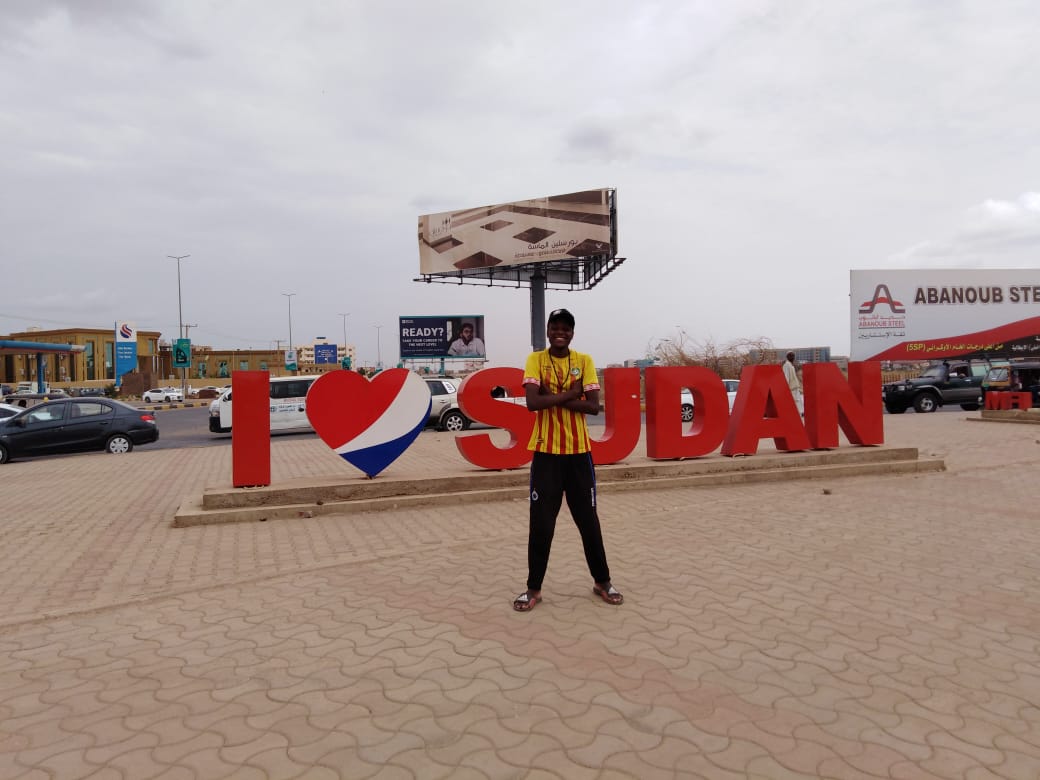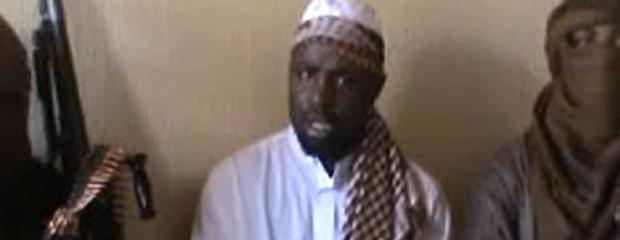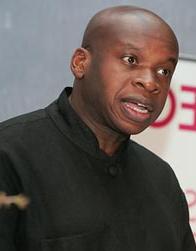Cape Town to Cairo: a 50-day journey to see the beautiful game

A football-mad fan risks visa restrictions, protests, soldiers, travelling through the desert to support his favourite team.

Zhakata in Khartoum. Credit: Alvin Zhakata
While most foreigners have managed to steer clear of the political strife in Sudan, one unaware traveller walked right into the crossfire at the peak of the civil unrest. Alvin Zhakata, an adventure-seeking football fan from Zimbabwe was en route to Egypt on a courageous road trip across Africa to watch the Africa Cup of Nations. The 50-day trip started in Cape Town and was to end in the Egyptian capital. Zhakata, a 30-year-old nurse from Harare, confesses that football is his first love. So when Egypt was announced as the tournament hosts, he started planning his epic adventure.
“It has always been my dream to achieve what no other person has achieved: travel to Cairo by road from Cape Town. With the passion that I have for football, this was my only chance through which I could express my passion,” he explains.
“In actual fact, there are people who offered to buy me an air-ticket to go to Egypt. I said this time I’m not flying…Another reason for my trip was to promote safe and free travel by road in Africa. Why should Africans face difficulties in travelling within our own continent? I was prepared to face anything on my way to reach Egypt.”
This declaration faced the most severe of pressure tests in Sudan. In this last transit country before Egypt, he found himself trapped between a sea of protesters and security forces. He arrived in Khartoum on the eve of a massive 30 June protest. He had not been aware that this march was in the works even though he had seen messages all over the town in Arabic with the date 30 June. Walking to the Egyptian embassy to apply for a visa, he soon found himself trapped between protesters and soldiers.
“I felt it was safer to proceed towards the direction of the soldiers, because if I had gone towards the protesters, I feared they were going to get attacked,” Zhakata recalls. “I tried to explain myself when I got to where the soldiers were but of course it was in vain due to the language barrier. They sat me down on the ground, then bundled me into an army van where they detained me for some hours before I was finally released.”
“I then hurried back to the safety of my lodgings upon being set free, from where I waited for days for the situation to improve so I could re-launch my quest for the visa. But that incident was so terrifying, the closest I’ve ever felt to death.”
Zhakata hurried to his lodgings and waited for the situation to improve. During this time, he was unreachable because of an internet blackout, sparking speculation and fear over his whereabouts among his loved ones back home. Zhakata says the whole experience was terrifying, but was nonetheless impressed by the hospitality of ordinary Sudanese citizens.
“I would love to say, and please pass on this message clearly, that the Sudanese people, the civilians, are the nicest people I met on my journey,” he says. “Yes, communication was a stumbling block. But they really tried their best, sometimes going out of their way, to help me. For example, if someone couldn’t hear a single word of English, they would go get me someone who did. No matter how poor the English was, the problem was solved.”
Born to do it
Zhakata was raised in football-crazy Mabvuku, a township in Zimbabwe’s capital. He grew up kicking around plastic balls with his friends on the dusty streets of the overcrowded neighbourhood, famed for producing some of Zimbabwe’s finest footballers.
However, playing was never his forte. The skinny youngster, who is also a keen musician, found his niche in cheering on teams. From an early age, he fell deeply in love with Dynamos, Zimbabwe’s best supported and most successful team with a record 22 domestic titles. Zhakata has hardly missed a Dynamos game and has composed some well-known songs for the team. His passion also spreads to the national team, nicknamed the Warriors.
Zhakata’s Cape-to-Cairo journey is his ambitious to date, but not his first road trip for the love of the beautiful game. In 2016, Zhakata embarked on his first foreign journey to Rwanda to support Zimbabwe. On that trip, he was accosted by what turned out to be fake policemen, who tried to take him to an unknown location to be “interrogated”. Between 2017 and 2019, he travelled by road to South Africa to root for his country in the COSAFA Cup.
The Cairo trip though has been far more eventful than previous ones. By Zhakata’s own admission, it was not well-organised despite taking several months to plan. The journey to Egypt was self-funded following months of saving from his modest nursing earnings. Zhakata was initially joined by friend Botha Msila, a South African celebrity fan who later abandoned the mission at the Kenya-Ethiopia border after facing visa hurdles.
Passing through Zimbabwe, Zambia, Tanzania and Kenya – four of the six countries – on the way to Egypt was visa free for the duo. Trouble started when they tried to get to Ethiopia through Kenya.
“Botha and I thought we had gathered sufficient travel information by researching on the internet and also speaking with individuals from the countries we were going to pass through,” says Zhakata. “Some of the information we got turned out to be inaccurate.”
The pair hoped to get a transit visa at the border, but found out this document was only for air travellers. They needed a full visa.
“I found the immigration officers to be quite rude. They told us to go back home and apply for visas from there, but I was determined to get my visa at the border,” he says.
To apply for the visa, however, they needed the internet which was shut down while the country held its national exams. They had to wait four days at the border before they could access the web. Tired of waiting, Misla left on the fourth day and returned to Nairobi. From there, he flew to Cairo courtesy of the South African government. Zhakata persevered and finally got his visa to Ethiopia on the fifth day. But his challenges were not yet over.
“When I finally got to Addis Ababa, there were roadblocks everywhere,” he says. “After every 20 km, the passengers had to get off the bus to get searched. If you were a foreigner, you were interrogated for much, much longer. And sometimes they had to wait for somebody who understood English.
“There were soldiers at the roadblocks, who were on the aggressive side. I had carried medicine with me for the trip, paracetamol and antibiotics. They confiscated it. They thought I was carrying drugs.”
Finally in Cairo
After delays in Addis, detention in Khartoum, and a drive through the desert where he had a minor accident, Zhakata finally arrived in Cairo. By this time, Zimbabwe had already been eliminated from the tournament. On his trip, he’d also been unable to watch any of their games on television.
However, along his journey, Zhakata had caused a stir in Cairo as the public learnt of his ambitious mission. For the final of the AFCON tournament last Friday, he was invited by Ahmad Ahmad, president of the Confederation of African Football (CAF), as a VVIP. CAF also announced it will pay for Zhakata’s flight back to Zimbabwe, where he is expected to receive a hero’s welcome. Until then he will enjoy a holiday in Egypt sponsored by the CAF President and other well-wishers.
Just when he thought all was well, however, Zhakata had one last taste of the drama that trailed him throughout his trip. During the Algeria-Senegal final, he lost his passport. As with like his previous episodes, though, where there was eventually a happy ending and he managed to recover it.





